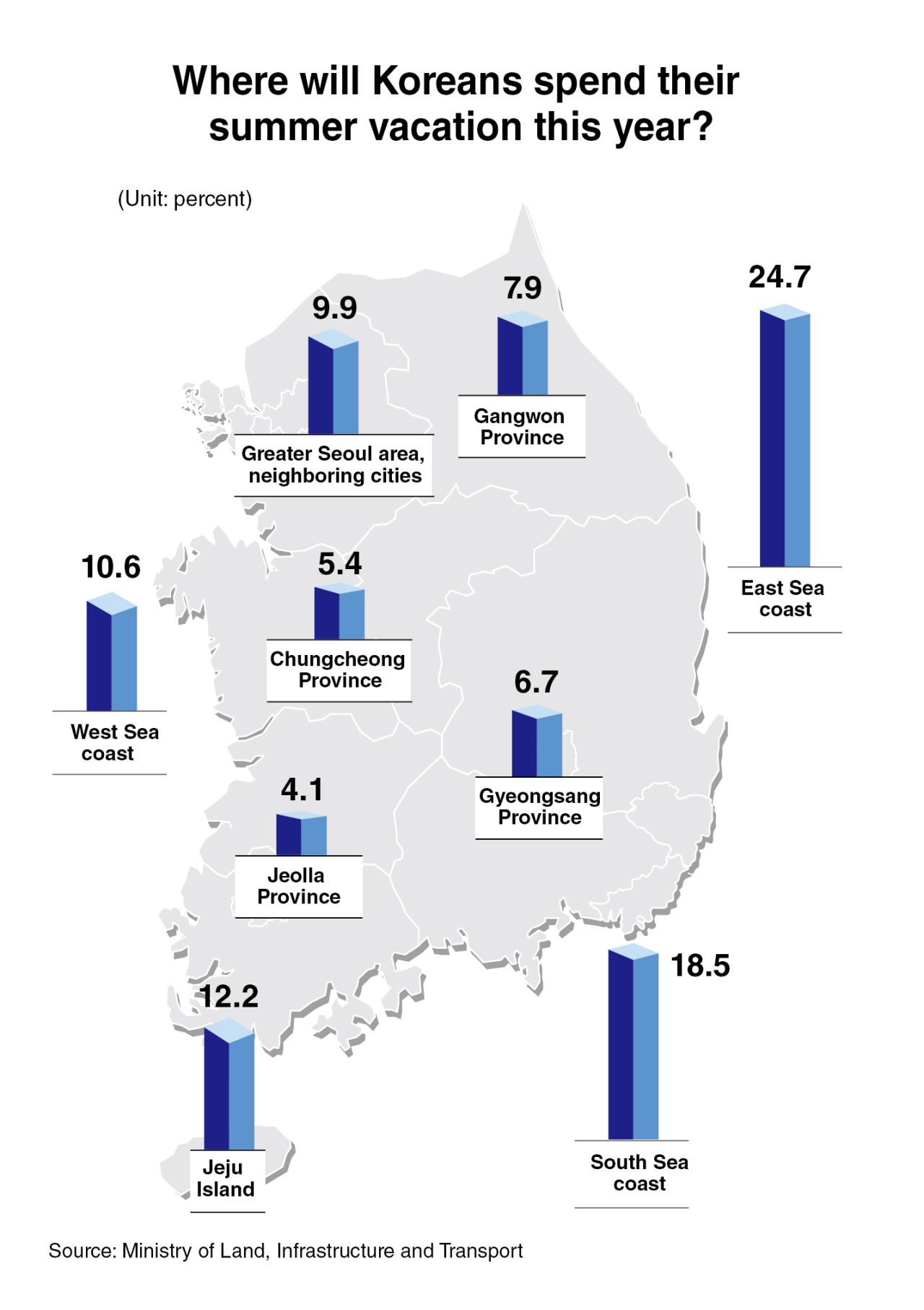
More Koreans plan to spend their summer vacation this year on the country‘s east coast instead of flying to the southern resort island of Jeju to save money amid rising inflation, a survey showed Wednesday.
The year’s busiest travel week is expected to be from July 30 to August 5, as usual, and households plan to spend an average of 952,000 won, according to the survey conducted by the Ministry of Land, Infrastructure and Transport.
The survey showed that 24.7 percent of respondents plan to head to the east coast, mostly in their own vehicles, while 18 percent said they planned to travel to locations along the South Sea, about 500 kilometers south of Seoul.
The list of destinations included Jeju Island in the third spot, with 12.2 percent, down by 7.8 percentage points compared to 2021. High travel costs including airfare and lodging are likely to have affected people’s decision when choosing where to spend their summer vacation, the ministry explained. Over 10 percent of respondents said they plan to travel to destinations on the west coast, while 7.9 percent said they plan to venture to Gangwon Province.
When asked about what kinds of destinations they hoped to visit, 32.9 percent responded they prefer the sea or streams in mountainous areas, while 28.1 percent chose more quiet places with natural attractions such as forests.
Average travel expenses are expected to surge on-year from 877,000 won ($670.80) to 952,000 won per household. A total of 44.1 percent said they plan to spend more than 1 million won.
Following the relaxed social distancing measures within the country and overseas, 64.5 percent of respondents answered they have summer travel plans. The figure was up by 26.7 percent points compared to 2021. The number of respondents who chose not to travel due to the coronavirus pandemic decreased from last year’s 74.7 percent to 13.9 percent.
Most respondents chose local travel sites, while only 6.7 percent plan to travel overseas. A total of 19.1 percent answered that they would go on a trip for three days, while 16.3 said more than six days, showing demand for travel has rebounded.
In order to ease traffic congestion, the ministry is set to open additional expressways and roads and offer real-time traffic information.
For roads along the east coast, which are likely to be packed with travelers, traffic authorities will open up side roads in both directions and guide vehicles from the expressways to alleviate congestion.
With the recent spread of new omicron subvariant, the ministry requires trains and express and intercity buses to provide ventilation every 4.5-6 minutes and 20-30 minutes, respectively. Airplanes must change air purifiers regularly and operate a real-time air recirculation system.
By Byun Hye-jin (
hyejin2@heraldcorp.com)







![[Today’s K-pop] Blackpink’s Jennie, Lisa invited to Coachella as solo acts](http://res.heraldm.com/phpwas/restmb_idxmake.php?idx=644&simg=/content/image/2024/11/21/20241121050099_0.jpg)
